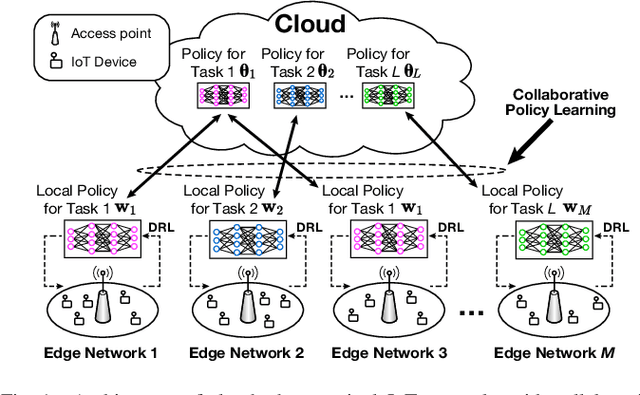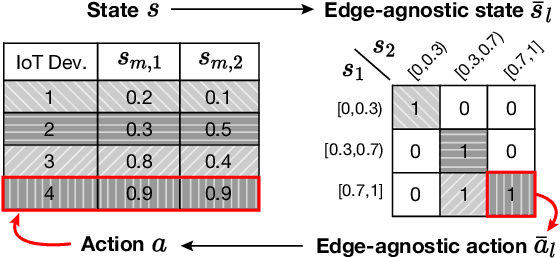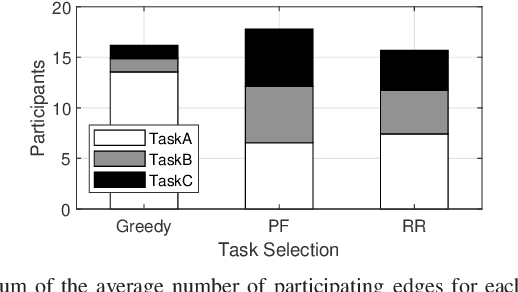Collaborative Policy Learning for Dynamic Scheduling Tasks in Cloud-Edge-Terminal IoT Networks Using Federated Reinforcement Learning
Paper and Code
Jul 02, 2023



In this paper, we examine cloud-edge-terminal IoT networks, where edges undertake a range of typical dynamic scheduling tasks. In these IoT networks, a central policy for each task can be constructed at a cloud server. The central policy can be then used by the edges conducting the task, thereby mitigating the need for them to learn their own policy from scratch. Furthermore, this central policy can be collaboratively learned at the cloud server by aggregating local experiences from the edges, thanks to the hierarchical architecture of the IoT networks. To this end, we propose a novel collaborative policy learning framework for dynamic scheduling tasks using federated reinforcement learning. For effective learning, our framework adaptively selects the tasks for collaborative learning in each round, taking into account the need for fairness among tasks. In addition, as a key enabler of the framework, we propose an edge-agnostic policy structure that enables the aggregation of local policies from different edges. We then provide the convergence analysis of the framework. Through simulations, we demonstrate that our proposed framework significantly outperforms the approaches without collaborative policy learning. Notably, it accelerates the learning speed of the policies and allows newly arrived edges to adapt to their tasks more easily.
 Add to Chrome
Add to Chrome Add to Firefox
Add to Firefox Add to Edge
Add to Edge